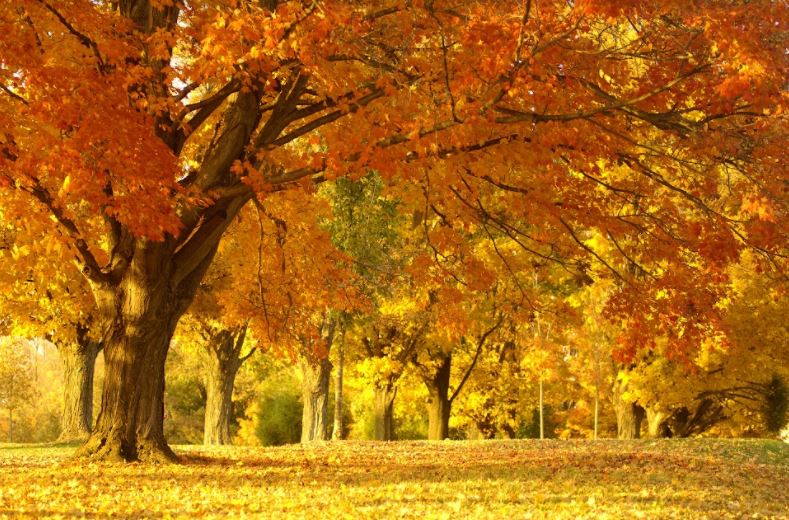
Still, leaf blowers are commonly seen as the simpler, faster option when it comes to gathering leaves.
But are they really more efficient than raking?...
Leaf Blowers Are Noisy
The high pitched whine from a leaf blower is known to be damaging to your ears. It's so loud that many choose to wear sound-deadening ear protection whenever they're operating a leaf blower.
The fact is leaf blowers are so noisy that ordinances have been passed in many cities and towns around Massachusetts limiting both the decibel rating and time of day that use of a leaf blower is allowed — frustrating many landscapers!
Some even go so far as to publish a list of allowable leaf blowers, mandating which brands and models can or cannot be used within city limits.
Beyond the noise pollution, you also need to consider the air pollution created when using a leaf blower.
In one year's time, that little leaf blower engine you hear buzzing up the street pumps out as much smog-forming pollution as 80 cars, each driven 12,500 miles.
Most leaf blowers are powered by a 2-cycle oil-burning gas motor. This type of motor is required to allow the high rpm which generates the high velocity air that blows the leaves away.
In addition to blowing leaves, there is a considerable amount of trash, dust, dirt and other allergens that are sent airborne as a result of using a leaf blower. This could greatly affect those susceptible to respiratory problems (such as asthma).
And don't forget the smoky exhaust. Leaf blowers do actually burn oil as it's mixed with the gas.
Leaf Blowers Alone Don't Get Rid Of Leaves
Blowing leaves and grass trimmings away from your property isn't necessarily taking care of the ultimate problem: disposing of all those leaves.
You see, you can use a leaf blower to gather all of the leaves into piles, making it easier for you to pick up and dispose of them. Or, you can use a leaf blower to simply blow leaves from your property to somewhere else. Many do the latter.
Unless you pick up (or rake up) the leaves after you've blown them into a pile, then you're simply redistributing the leaves, rather than eliminating them. Leaves that are randomly blown away also tend to find their way down the storm sewer — causing water backups, flooded basements, and all sorts of grief for the Public Works Dept.
The Best Thing About Leaf Blowers
Of course there are some good reasons to use a leaf blower. They are faster, easier, and require less effort than raking does in open areas.
Unfortunately, most leaf blowers are used improperly from the get-go.
Leaf blowers are great for blowing grass clippings off your sidewalks and driveway and back into your lawn. Sending freshly cut grass clippings back into your lawn is actually good for your lawn. The hand held rechargeable blowers work great for this task.
Is Leaf Blowing Faster Than Raking?
I don't know, you tell me...
Every situation is different. It makes sense to use a leaf blower in larger open areas where blower are their most efficient. In small areas where there is really no where to blow them into a pile because there are so many obstacles, it makes more sense to rake.
In one 3-phase test, comparing a well-muscled leaf blower to a diminutive grandmother with a rake, the rake and broom were as fast as the leaf blower.
For information on fall cleanups using hand-tools, contact Paul Marini at Fine Gardeners.
Household Tips Guide